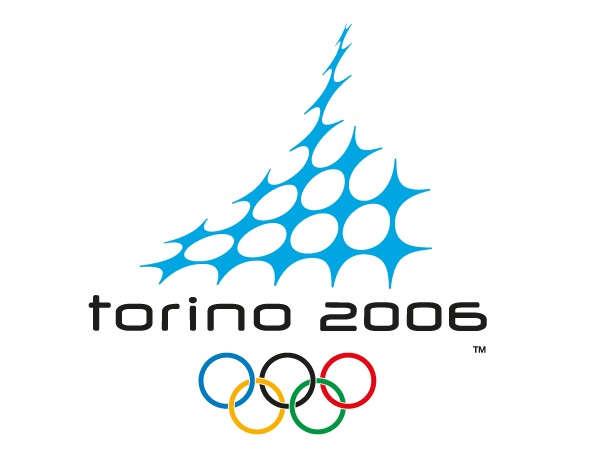Mauritius in the Global Financial Ecosystem
The Island’s Strides in Banking, Finance, and Fintech
Mauritius has made remarkable progress in the global financial landscape. Historically known for its sugarcane and tourism industries, the island nation has diversified into banking, finance, and fintech over recent decades. International banks have established branches, while local banks have expanded their reach beyond the island. Moreover, Mauritius has positioned itself as a gateway to Africa, drawing investors keen on the African markets but seeking a stable and efficient platform.
In fintech, Mauritius is not lagging. Innovative digital payment solutions, e-wallets, and tech-driven financial services are burgeoning. The government’s emphasis on a digital economy has paved the way for startups and established businesses to innovate and cater to a tech-savvy population and businesses that require sophisticated financial tools.
Mauritius’ Commitment to Financial Transparency
Amid its financial sector growth, Mauritius has recognized the importance of financial transparency. To maintain its reputation and ensure sustainable growth, the country has implemented a robust regulatory framework. The Financial Services Commission (FSC) plays a pivotal role, overseeing non-banking financial institutions and ensuring compliance.
Mauritius has actively participated in international transparency initiatives. It’s a committed member of the Organisation for Economic Co-operation and Development (OECD) and adheres to global standards on tax transparency and exchange of information. This commitment positions Mauritius as a trustworthy and reputable player in the global financial ecosystem.

Advantages of Choosing Mauritius for Forex Operations
- Ease of Business Operations and Investor-friendly Policies
Mauritius has consistently ranked high in ease of doing business indexes, particularly in the African region. The country offers a streamlined process for business registration, licensing, and operations. This efficiency reduces the bureaucratic red tape that can often hamper the growth and setup of new businesses, including those in the forex industry.
Investor-friendly policies have become one of Mauritius’ trademarks. The island nation provides a host of incentives for foreign investments, such as competitive tax rates, protection against double taxation, and the absence of capital gains tax. Its network of double taxation avoidance treaties, especially with numerous African countries, positions Mauritius as an ideal hub for businesses eyeing the African market.
- Robust IT Infrastructure and Skilled Workforce
For forex operations, having a reliable IT infrastructure is paramount. Mauritius has invested significantly in modernizing its technological infrastructure. This includes high-speed internet connectivity, data centers, and cybersecurity measures that are essential for the uninterrupted flow of forex trading.
Complementing the infrastructure is a skilled workforce. Mauritius boasts a high literacy rate and a pool of professionals trained in finance, IT, and related fields. The government has also prioritized education and training in fintech, ensuring a steady supply of talent for the growing forex sector. This combination of cutting-edge IT facilities and a proficient workforce makes Mauritius an attractive destination for forex operations.

What Sets Mauritius Apart
A Deep Dive into the Particulars of the License
Mauritius has established a comprehensive licensing regime tailored to cater to various segments of the financial industry, including forex. The license, issued by the Financial Services Commission (FSC), ensures that forex brokers and related entities adhere to global best practices. This involves meeting minimum capital requirements, providing periodic financial statements, and demonstrating measures for client protection, among other criteria.
The licensing process includes a thorough evaluation of the company’s directors and senior managers, ensuring their fitness and propriety. This meticulous vetting ensures that only entities with sound governance structures and business models are granted the necessary permits.
The Competitive Edge Offered by Mauritius’ Regulatory Framework
Mauritius’ regulatory framework offers a balance between stringent oversight and business-friendly practices. While the FSC ensures rigorous compliance, it also appreciates the dynamic nature of the forex industry and adopts a progressive approach to regulation.
The country’s regulatory environment stands out for its adaptability, incorporating feedback from industry players and updating guidelines to keep pace with global advancements. The FSC provides avenues for continuous dialogue with industry participants, fostering a cooperative regulatory atmosphere.
Mauritius’ framework emphasizes investor protection, with mechanisms like segregated client accounts and investor compensation schemes. Such features enhance the country’s appeal as a trustworthy and dependable jurisdiction for forex operations, giving it a competitive edge in the global financial landscape.
From Start to Finish
The Roadmap of the Application Procedure
The journey to obtaining a forex license in Mauritius begins with an in-depth self-assessment. Applicants must first ensure they meet the prerequisites set by the Financial Services Commission (FSC) in terms of capital adequacy, governance structures, and business plans.
Once the groundwork is complete, the formal application process ensues. Applicants submit a detailed dossier to the FSC, encompassing various documents: business plan, financial projections, detailed profiles of directors and key personnel, evidence of initial capital, and risk management strategies, among others.
Parallelly, there’s a rigorous due diligence process. The FSC assesses the backgrounds of significant stakeholders, ensuring they have a clean track record and are competent to handle forex operations.
Vital Checkpoints and Milestones in the Licensing Journey
Several critical milestones punctuate the application odyssey:
- Initial Consultation: Before diving in, many applicants engage in consultations with the FSC or tap into local consultants’ expertise. This step helps in understanding the regulatory landscape and tailoring the application accordingly.
- Submission of Application: Once all documents are collated, the formal application is submitted, marking a significant step in the journey.
- Review and Queries: Post submission, the FSC reviews the application. During this stage, the FSC might raise queries or seek additional information. Prompt and comprehensive responses are essential here.
- Site Visit: In some cases, the FSC might conduct site visits to the applicant’s operational base, offering a hands-on assessment of the infrastructure and operational readiness.
- License Approval or Rejection: After thorough vetting, the FSC makes its decision. If all criteria are met and the FSC is satisfied with the applicant’s credentials, the forex license is granted. Conversely, if there are gaps or concerns, the application might face rejection.
- Post-License Compliance: Even after obtaining the license, regular compliance checks, audits, and reports ensure that licensed entities maintain the standards set by the FSC.
Throughout this journey, diligence, preparedness, and transparency are crucial for a successful outcome.


Building Trust: Ensuring Client Confidence
Measures to Guarantee Transparency and Reliability
In the volatile realm of forex trading, transparency and reliability aren’t mere buzzwords; they’re the bedrock of lasting client relationships. Brokers and financial institutions that prioritize these attributes enjoy greater client loyalty and enhanced brand reputation.
- Clear Communication: Every communication, whether it’s about fees, spreads, or leverage, should be unambiguous. Clients should never feel that they’re navigating a maze of jargon or hidden clauses. Simple, straightforward language fosters trust.
- Robust Technology: A seamless trading experience, devoid of glitches and system downtimes, assures clients of the platform’s reliability. Investment in cutting-edge technology also ensures real-time data accuracy, vital for forex trading.
- Segregation of Funds: To bolster confidence, brokers should maintain client funds separately from their operational funds. This segregation safeguards client money, ensuring it’s not misused or mingled with the company’s assets.
- Regular Reporting: Periodic account statements, trade summaries, and transaction logs allow clients to stay informed. These reports, made available in easily accessible formats, enhance transparency.
- Full Disclosure: From potential risks to conflict of interest policies, every aspect that impacts a client’s decision should be disclosed proactively. This ensures clients make informed decisions, aware of potential pitfalls.
Importance of Client Feedback and Grievance Redressal
Building trust is a continuous process, and client feedback serves as a crucial compass guiding this journey.
- Valuable Insights: Clients, being end-users, offer insights that might elude even the most meticulous internal audits. Their feedback, whether lauding an excellent feature or highlighting a glitch, provides real-world assessments of the platform’s functionality.
- Trust Building: Actively seeking feedback signals that the institution values its clients’ opinions. Implementing changes based on their suggestions further consolidates this trust, portraying a client-centric approach.
- Prompt Grievance Redressal: Even with the best systems, grievances can arise. The efficiency and sensitivity with which these grievances are addressed determine the institution’s credibility. A well-defined, easily accessible grievance redressal system should be in place, ensuring clients have a clear avenue to voice concerns.
- Feedback Loop: Beyond merely collecting feedback, establishing a loop where clients are informed of the actions taken based on their suggestions amplifies trust. This transparency in addressing issues and acknowledging feedback underscores a commitment to continuous improvement.

Embracing Technological Innovations
The Impact of Technology on Forex Operations
The world of forex has undergone a transformative change, primarily driven by technological innovations. Gone are the days when forex trading was limited to large banks and financial institutions. Today, anyone with an internet connection and a computer or smartphone can access the global forex market.
- Algorithmic Trading: Sophisticated algorithms now allow for automated trading based on pre-set parameters. These algorithms can process vast amounts of data at incredible speeds, executing trades in milliseconds.
- Real-time Data: Access to real-time market data, coupled with advanced analytical tools, enables traders to make informed decisions swiftly. Predictive analytics, drawing on historical data, can also provide insights into potential market movements.
- Decentralization: Peer-to-peer forex trading platforms have emerged, allowing traders to bypass traditional intermediaries. This decentralization can lead to reduced costs and more direct market access.
- Enhanced Security: With cyber threats on the rise, advanced encryption techniques and two-factor authentication ensure traders’ personal and financial information remains protected.
- Mobile Trading: The proliferation of mobile apps dedicated to forex trading means that traders can now manage their portfolios, execute trades, and monitor the market from anywhere, anytime.
Mauritius’ Initiatives in Embracing Fintech Solutions
Mauritius, understanding the winds of change, has been proactive in integrating fintech into its financial landscape, and the forex sector is no exception.
- Regulatory Sandbox License (RSL): The introduction of the RSL by the Mauritian government offers fintech startups and businesses a space to test their innovative products, services, and models without immediately falling under the full scope of regulatory oversight.
- Fintech Hub: Mauritius aims to become a fintech hub for the African region. It’s actively fostering partnerships, encouraging investments, and hosting fintech events to drive innovation in this space.
- Digital Payment Systems: Recognizing the shift towards digital transactions, the Bank of Mauritius has initiated frameworks that promote digital payment systems, ensuring secure, swift, and seamless monetary transfers.
- Capacity Building: Mauritius is investing in skilling its workforce to meet the demands of a fintech-driven financial sector. Collaborations with global institutions, workshops, and courses focused on fintech ensure a steady talent pool familiar with the latest technological trends.
- Infrastructure Development: From establishing state-of-the-art data centers to enhancing internet connectivity, Mauritius is laying down the infrastructure required for robust fintech growth.
Wrapping Up
A Recap of the Compelling Case for Forex Licensing in Mauritius
Mauritius has emerged as a formidable player in the global forex arena. Beyond its idyllic beaches, the island nation offers a potent blend of business-friendly policies, robust regulatory frameworks, and cutting-edge technological infrastructure. The meticulous licensing process administered by the Financial Services Commission (FSC) ensures that forex entities maintain global best practices, promoting transparency and investor confidence. With a rich history in banking and finance, Mauritius’ contemporary strides in fintech position it uniquely, making it an attractive destination for global forex players.

